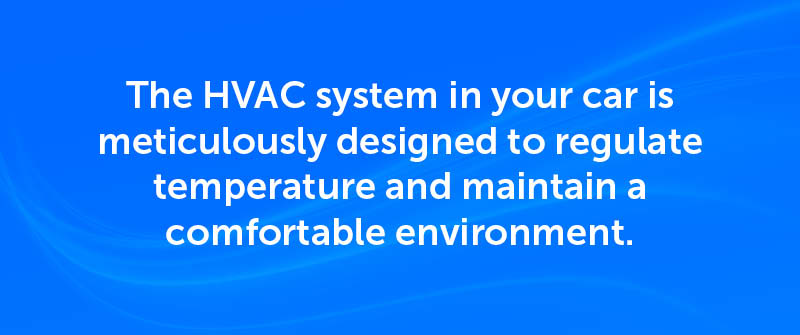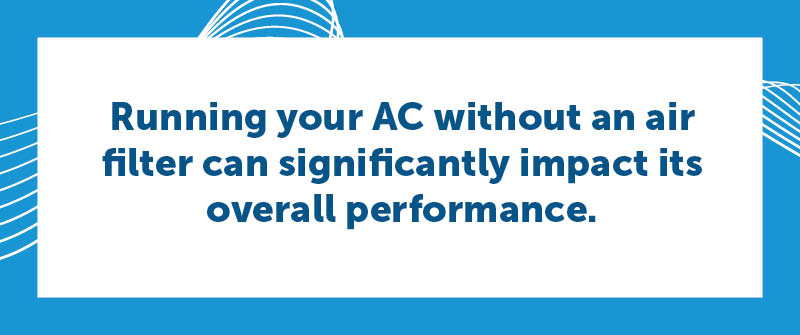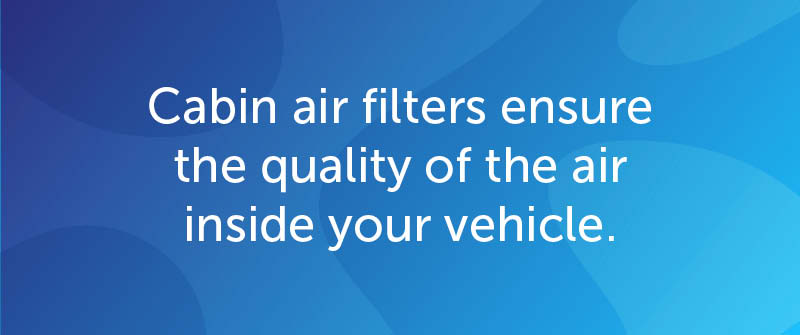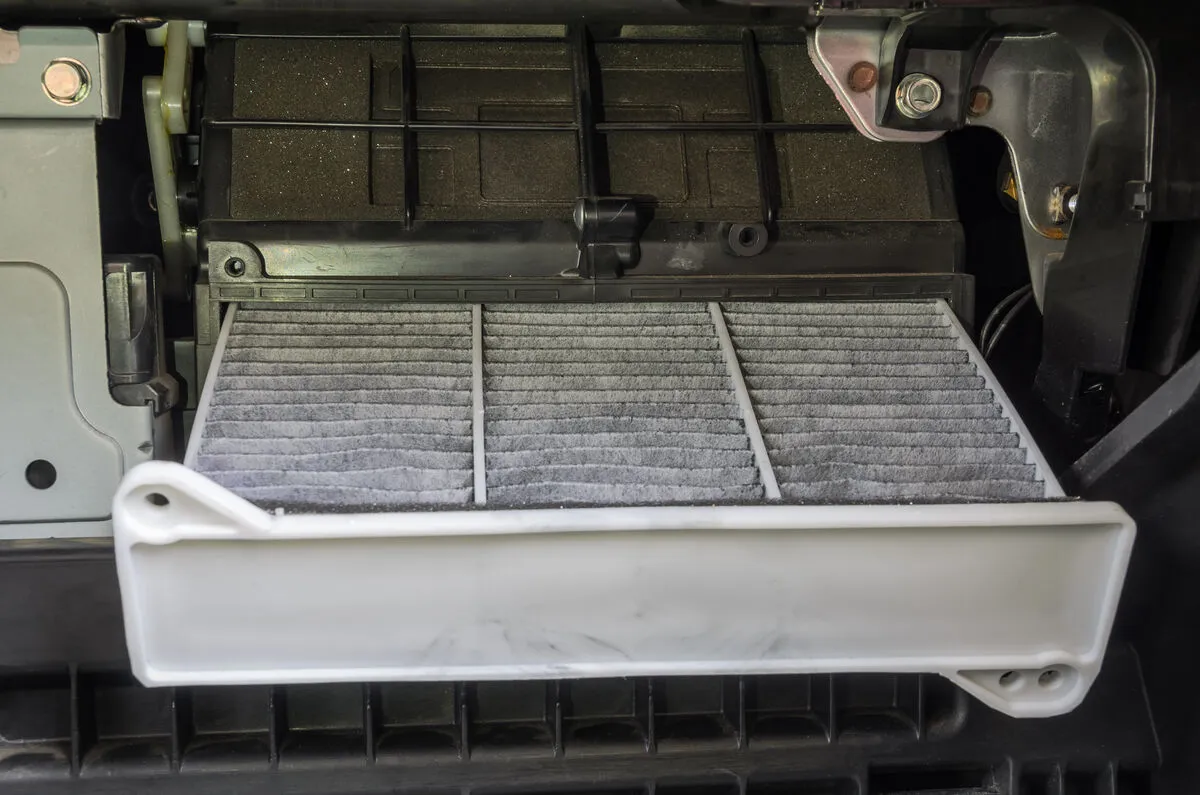What Happens If You Run Without A Cabin Air Filter?
Running your vehicle without a cabin air filter can significantly impact the air quality inside your car. The primary function of a cabin air filter is to trap dust, pollen, and other airborne contaminants, including harmful dust particles, ensuring that the air circulating in the car’s interior is clean and healthy. Without this filter, these pollutants are free to enter the cabin, leading to a direct increase in harmful particles in the air you breathe. This not only affects the air quality but also compromises the freshness of the air entering the vehicle.
This influx of pollutants can pose several health risks, especially to individuals who suffer from allergies or respiratory issues. Pollutants like dust and pollen can trigger allergic reactions and exacerbate conditions such as asthma, making it crucial to maintain clean air within your vehicle.
Furthermore, the absence of a cabin air filter can lead to a noticeable decline in the overall air quality inside your car. Passengers may experience discomfort due to odors and increased levels of allergens. Over time, this can turn even short drives into unpleasant experiences, underlining the importance of regular maintenance and replacing your cabin air filter.
What Happens If You Take Out The Cabin Air Filter?
Removing your cabin air filter might seem trivial, but it can lead to significant consequences for your vehicle’s HVAC system and overall air quality.
Impact On The HVAC System’s Performance
The HVAC system in your car is meticulously designed to regulate temperature and maintain a comfortable environment. A cabin air filter plays a crucial role by ensuring that the air circulated by the system is clean and free from pollutants. Without it, debris like dust, pollen, and other particles can clog the vents and internal components. This not only hampers the system’s efficiency and affects airflow but also leads to increased wear and tear. Additionally, debris can enter the system and affect the heater core, leading to costly cleaning and maintenance issues.

Effects On Air Circulation Efficiency
A missing cabin filter can disrupt the smooth flow of air within the car. The absence of the filter allows larger particles to enter the air ducts, potentially blocking them and decreasing the overall efficiency of air circulation. This blockage can lead to uneven temperatures in the cabin and reduced heating or cooling capabilities, making it uncomfortable for passengers.
Increased Potential For Mold And Mildew Growth
Another significant risk associated with the absence of a cabin air filter is the potential for mold and mildew growth. The filter helps maintain a dry and clean environment through effective air circulation. In its absence, moisture can accumulate, creating an ideal breeding ground for mold and mildew. This can lead to unpleasant odors and could pose health risks, especially for those with respiratory issues.
Is A Cabin Air Filter Really Necessary?
Are cabin air filters necessary? Yes, a cabin air filter is an essential component of your vehicle’s HVAC system. It plays a critical role in maintaining vehicle air quality by filtering out dust, pollen, allergens, and other airborne contaminants that could enter the cabin through the heating and cooling systems. For those with allergies or respiratory issues, a functioning cabin air filter can make a significant difference in comfort and health while driving.
Without a cabin air filter, the air quality inside your car can decline rapidly. The HVAC system may circulate polluted air, potentially leading to health concerns, especially for sensitive individuals. Additionally, without regular maintenance and replacement of this filter, the comfort of your ride and the efficiency of your vehicle’s HVAC system may decrease.
Regular maintenance and timely replacement of cabin air filters ensure they function properly and provide optimal pollutant filtration. By neglecting this simple maintenance task, you expose yourself and your passengers to unfiltered pollutants that could affect your driving comfort and well-being.
Consequences Of Not Having A Cabin Air Filter
Running your vehicle without a cabin air filter can lead to various issues. Over time, contaminants will accumulate, affecting the air quality inside the cabin and potentially causing odors, health problems, or even mold growth. Moreover, a clogged or missing filter can affect the performance of the HVAC system, increasing wear and potentially leading to costly repairs or replacements.
Importance Of Regular Maintenance And Replacement
Regular replacement of your vehicle’s cabin air filter is vital not only for health reasons but also for maintaining the overall functionality of the HVAC system. To access the cabin air filter, you often need to remove the glove box, which is a straightforward process detailed in many vehicle manuals. Most manufacturers suggest replacing cabin air filters every 15,000 to 30,000 miles, but this can vary based on driving conditions and environmental factors. For high-quality replacement options, Discount Filters provides an array of cabin air filters designed to fit various car models, ensuring that your air remains fresh and your car performs optimally.
In conclusion, while it might seem like a minor component, the cabin air filter is a crucial element of vehicle maintenance. It ensures clean air circulation within your car and contributes significantly to your comfort and health during your travels.
What Happens If I Run My AC Without An Air Filter?
Running your AC without an air filter can significantly impact its overall performance. The primary role of an air filter is to capture dust, debris, and other airborne particles, preventing them from entering and damaging the AC system. Without a filter, these particles can accumulate within the system, leading to a host of operational issues.

Impact On Air Conditioning System Efficiency
The absence of a filter means that dust and dirt can freely enter the AC unit, settling on critical components such as the evaporator coil. This buildup results in reduced efficiency as the coil becomes less effective at absorbing heat, leading to inadequate cooling and potential system overheating. Consequently, your AC will need to run longer and work harder to maintain desired temperatures, thus reducing its overall performance.
Potential For Increased Wear And Tear
The strain on your air conditioning system without the protective barrier of an air filter can lead to accelerated wear and tear. Components like the blower motor are forced to operate under additional stress, which can lead to premature failures. This system strain not only shortens the lifespan of your AC unit but can also result in expensive repair bills.
Possible Increase In Repair Costs Due To System Strain
Operating an AC system without a filter can lead to increased repair costs. Contaminants build up on fan blades, motors, and other parts, hindering their functionality and potentially causing irreversible damage. Such neglect can ultimately lead to the necessity of replacing major components, which is significantly more costly than maintaining a clean and functional air filter.
In conclusion, running your AC without an air filter is detrimental to both the system’s efficiency and lifespan. Regularly replacing air filters is a simple and cost-effective measure to prevent these issues and ensure your air conditioning system operates optimally.
What If My Car Has No Cabin Air Filter?
Some vehicle models, particularly older ones, were not originally equipped with cabin air filters. While modern cars generally come with them as a standard feature, there are still some vehicles on the road where this is not the case. If you’ve discovered that your car has no cabin air filter, understanding your options can be crucial to improving your vehicle’s air quality.
Identification Of Car Models Without Cabin Air Filters
The first step is to determine whether your vehicle was designed with a cabin air filter. This information is typically found in your vehicle’s owner manual or by consulting your dealership. Vehicles manufactured before the late 1990s often lack this feature. However, certain models, even in newer releases, might not include cabin air filters due to cost-cutting measures or market specifications.
Suggestions For Installing A Cabin Air Filter
If your car did not come with a cabin air filter, you might have the option to retrofit one. Some vehicles provide a slot for a cabin air filter even if they weren’t originally equipped with one. This makes aftermarket installation possible. You can contact a reliable mechanic or refer to your vehicle’s service guide to explore installation opportunities. Retrofitting might involve more labor and cost, but it enhances vehicle air quality significantly.
Benefits Of Aftermarket Cabin Air Filters
Investing in an aftermarket cabin air filter, especially from reputable suppliers like Discount Filters, offers numerous benefits. These filters help in removing dust particles, pollen, and other pollutants from entering the cabin, enhancing passenger comfort and health. They also protect the HVAC system by preventing debris buildup, improving its longevity and performance. Plus, you can enjoy a more pleasant driving environment with reduced odors and cleaner airflow.
Conclusion
Cabin air filters play a vital role in ensuring the quality of the air inside your vehicle. They are essential for filtering out pollutants, allergens, and unpleasant odors that may enter through the car’s ventilation system. Failing to maintain and replace these filters regularly can lead to a decline in air quality, which may cause discomfort and potential health risks, particularly for individuals with allergies or respiratory issues.

Routine cabin air filter maintenance not only enhances your driving experience by providing cleaner air but also contributes to the longevity of your vehicle’s HVAC system. By keeping debris and contaminants at bay, you can prevent additional strain on the system, reducing the likelihood of expensive repairs in the future. This ultimately translates to both health and financial benefits, making it an integral part of regular vehicle maintenance.
As you evaluate the health and operational aspects of your vehicle, remember the crucial role these filters play. Regularly checking and replacing the cabin air filter should be a standard part of your maintenance routine, ensuring that you and your passengers breathe easier, and your vehicle runs smoothly. Ignoring this small but significant component can lead to more significant issues down the line, both in terms of air quality and mechanical wear.
Invest in health benefits and vehicle longevity by upgrading your filtration system today. With Discount Filters, you have access to a comprehensive selection of cabin air filters tailored to fit your needs. Experience cleaner air and extend the life of your vehicle’s systems by choosing top-quality filters that deliver exceptional performance. Breathe easier and drive confidently with our reliable filtering solutions.

